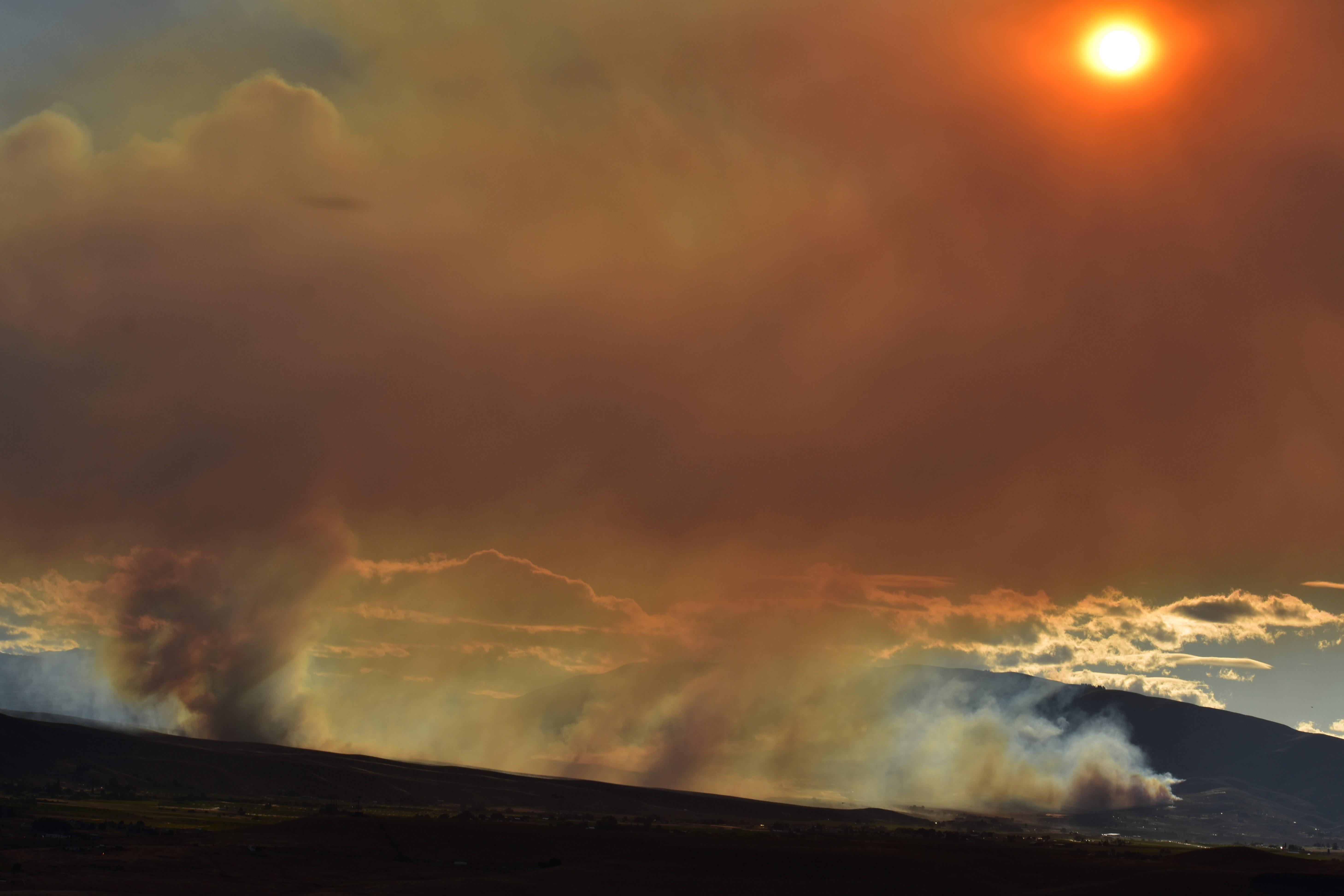As smoke season is right around the corner on the Palouse, it's important to learn how to keep children safe and healthy should air quality levels worsen into the late summer. “Every summer I dread the moment that smoke decides to roll in and stay for a few weeks,” says Dr. Katie Hryniewicz, pediatrician at Palouse Pediatrics. “And on the Palouse, that likes to coincide with other things like summer grass pollen season and the onset of harvest. Needless to say, if you have asthma, it can be a really bad trifecta!”
The effects of wildfire smoke can pose unique challenges for children of different age groups so let’s explore age-specific strategies to help children stay healthy and safe.
- 0-3 Years Old: For infants and toddlers, it's crucial to minimize exposure to smoke as much as possible. Keep children indoors with closed windows and doors to maintain a clean indoor environment. Use air purifiers or filters to improve air quality within your home. Create a calm and engaging indoor space with age-appropriate toys and activities to keep them occupied. Ensure they stay well-hydrated by offering frequent sips of water or breast milk/formula.
- 4-6 Years Old: Children in this age group can begin to understand the importance of staying indoors during smoke season. Encourage them to engage in indoor play, reading, or arts and crafts. Consider setting up an air-filtered play area or "clean room" to provide a safe space. Encourage proper hand hygiene and ensure they drink sufficient water throughout the day. Use creative methods like storytelling or videos to help them understand the importance of avoiding smoke exposure.
- 7-11 Years Old: With older children, focus on educating them about the health risks associated with smoke exposure. Teach them how to check air quality indexes and involve them in monitoring updates in the community. Encourage indoor activities such as puzzles, board games, or science experiments to keep them engaged. It’s also important for them to drink plenty of water and practice proper hand hygiene. Take time to openly communicate and address any concerns or questions they may have about smoke season.
- 12-15 Years Old: Pre-teens and young teenagers can play an active role in staying healthy during smoke season. Teach them how to properly wear N95 masks when going outdoors or when air quality is poor. Encourage them to participate in indoor exercises, such as yoga or home workout routines, to stay physically active. Engage them in discussions about the importance of maintaining good air quality indoors, such as avoiding the use of candles or incense. Remind them to drink water regularly and speak up if they experience any respiratory symptoms.
- 15+ Years Old: Teenagers and young adults can take more responsibility for their health during smoke season. Encourage them to stay informed about air quality conditions and make decisions accordingly. Teach them about the potential health risks of smoke exposure and the importance of wearing proper masks when necessary. Support their involvement in indoor hobbies, creative projects, or virtual social activities. Remind them to prioritize hydration, practice good sleep habits, and seek medical care if they experience severe respiratory symptoms.
Navigating smoke season on the Palouse requires a collective effort to prioritize the health and well-being of children and adolescents, especially those with asthma. Dr. Katie says that “your child with asthma should have a yearly well check plus be seen at least every 3-6 months for asthma visits.” She encourages parents to take inventory now and get ahead of smoke season, don’t wait for it to get here. Below is Dr. Katie’s list of things to ask yourself heading into smoke season:
- When did your child last see their doctor?
- Has your child had any asthma flares recently?
- Have they been to the hospital or emergency department at all this year?
- Has your child needed oral steroids?
- Are they on a controller medication daily?
- If so, has it needed to be adjusted in the past year?
- Does your child have any baseline daily symptoms that could be better addressed?
- How frequently does your child use their albuterol rescue? Is it expired or does it need to be refilled?
- Do you have school asthma forms updated?
- Do you have an asthma action plan?
“For allergy season and smoke season, when it comes to asthma, I always like to be preventive instead of reactive,” says Dr. Katie. “So schedule that visit now while the skies are still blue!”
To establish care or schedule an appointment with Dr. Katie, or another pediatrician at Palouse Pediatrics, please call our Pullman (509-332-2605) or Moscow (208-882-2247) office. Learn more by visiting the Palouse Pediatrics website.
